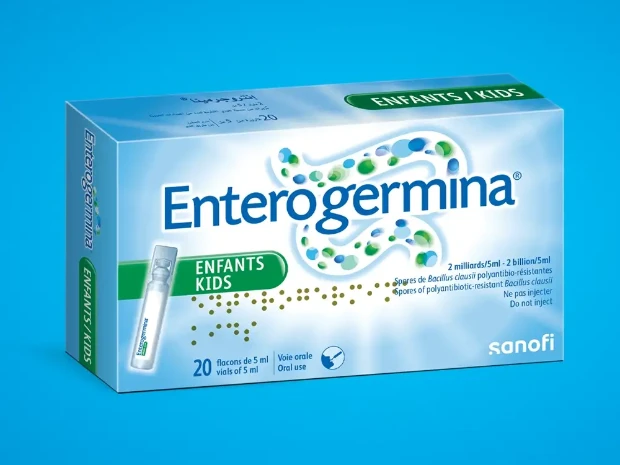5 min Read
When you hear “antibiotics diarrhea,” you may be thinking of diarrhea that is accompanied by cramps in the abdomen. This is caused by antibiotics killing off a large number of natural bacteria in the intestine, which upsets the balance between different species of bacteria.7
Can antibiotics cause diarrhea?
Antibiotics are drugs that treat bacterial infections by either eradicating the bacteria or making it impossible for them to spread and multiply. As with any other drug, antibiotics can cause side effects. 1 Some of these occur when stopping antibiotics as diarrhea, nausea and vomiting, abdominal pain, loss of appetite, bloating, and stomach upset. 2
You may be wondering why antibiotics cause diarrhea at this point. Well, a range of healthy bacteria that support digestion and improve your general health is found in your intestines. When you take antibiotics, they eliminate both beneficial and harmful germs, upsetting the body’s delicate equilibrium. resulting in diarrhea. 3
In addition to that, the control of opportunistic bacteria’s growth is another task carried out by beneficial bacteria. When antibiotics kill good bacteria, they can promote the growth of bacteria that release toxins and cause diarrhea, such as Clostridium difficile. This can result in infections and persistent diarrhea after antibiotics. 3
Symptoms of Antibiotics diarrhea
Due to a slight alteration in the population of gut bacteria, taking antibiotics occasionally causes loose stools or mild diarrhea for a few days. But ideally, these symptoms should go away once you’ve finished taking your antibiotics. 5
Antibiotics associated diarrhea treatment
As we previously mentioned, once you stop taking the antibiotics, diarrhea usually stops as well, but there are some ways to manage the symptoms and lessen them:6

Maintain Hydration
To make up for the fluid lost during diarrhea, it is preferable to consume a sizable amount of liquids. Try broth or fruit juice without added sugar. Because beverages like coffee, tea, and colas that are high in sugar, alcohol, or caffeine can exacerbate your condition.

Avoid dairy products as well as fatty and spicy foods
Don’t eat these things. Typically, you can resume your regular diet as soon as your symptoms subside.

Use probiotics
Probiotics assist in restoring the equilibrium of the digestive tract’s healthy microorganisms. They can be found as concentrated supplements in liquid, tablet, powder, and capsule form, or they can be found in foods like yogurt. The most well-studied probiotics for diarrhea brought on by antibiotics are those based on Lactobacillus rhamnosus or Saccharomyces boulardii. 7
ENTEROGERMINA® is a probiotic supplement that has a proven effect in reducing the most common digestive side effects related to antibiotic therapy while using it.10
When to see a doctor
If you have been taking antibiotics and experience any of the following symptoms, call your doctor immediately: 5
- More than five episodes of diarrhea or High-volume, watery diarrhea each day.
- Abdominal pain or discomfort.
- Stool with blood or pus.
- High temperature.
What should I eat if I have diarrhea from antibiotics?
While high fiber foods are recommended when you’re healthy, eating them when you have diarrhea can exacerbate your diarrhea, but potassium-rich foods can help. If you’re suffering from diarrhea after antibiotics, try these tips:

Food to eat
The general role is eating a low-fiber diet, increasing consumption of foods that contain potassium, and keeping hydrated. As an example:[3]
- Fluid as water and broths.
- Fruit mostly bananas.
- Grains such as white rice, white bread, and noodles.
- Yogurt made with probiotics.
- Sources of protein including poultry, lean meats, and seafood.

Food to avoid
Some foods may make your symptoms worse or disrupt how well your antibiotic therapy works. These consist of:[3]
- Caffeinated beverages and alcoholic drinks.
- Dairy products except for yogurt.
- Foods are high in fat, including fried dishes, baked products, and potato chips.
- Meals and drinks with a lot of added sugar, such as fruit juices, cakes, and cookies.
- Calcium supplements or consuming grapefruit.
Can I take probiotics together with antibiotics?
The question of whether you should take probiotics together with antibiotics is controversial, therefore a straightforward solution is not possible. According to some data, it lessens medications diarrhea. However, several sources oppose using it. For instance, the probiotic supplement ENTEROGERMINA®, which includes the bacterium Bacillus clausii, is used to improve gut health by reestablishing the natural microbial flora of the intestines and curing diarrheal symptoms. And when utilized for the appropriate reason and treatment plan, it is quite successful. 9
If you want to take probiotics while taking antibiotics, begin the probiotics the same day as the antibiotics but space them out by at least 2 hours. Also, keep taking probiotics for a few weeks after the antibiotic cycle had over.8
How to prevent diarrhea when you take antibiotics?
The following advice can help you avoid diarrhea while taking antibiotics: 4
- Think about changing your diet for a few days; avoid dairy products, greasy foods, spicy foods, meals high in fiber, and foods that frequently cause diarrhea.
- Avoid alcohol and caffeine, and drink water instead.
- Rest in bed.
- Follow the directions on your prescriptions and only use antibiotics when necessary. 3
- Maintain proper hygiene. 3
The bottom line
Diarrhea brought on by antibiotics is one of the adverse effects you could face while undergoing therapy. You may stop it in a variety of ways, such as by cutting back on foods that make you ill with diarrhea and refraining from abusing antibiotics. In addition, probiotics like ENTEROGERMINA®, which are highly efficient in restoring gut flora, can be a useful approach to prevent and cure diarrhea brought on by antibiotic usage.
Browse Our Products
Enterogermina®’s range will scan the gut for intestinal flora imbalance and deliver billions of good bacteria to treat both the condition and associated symptoms. 11
- https://medlineplus.gov/antibiotics.html , last visited 3rd November 2022
- https://www.nhs.uk/conditions/antibiotics/side-effects/ , last visited 3rd November 2022
- https://www.healthline.com/health/antibiotics-diarrhea , last visited 3rd November 2022
- https://www.everydayhealth.com/diarrhea/antibiotic-associated-diarrhea/ , last visited 3rd November 2022
- https://www.drugs.com/health-guide/antibiotic-associated-diarrhea.html , last visited 3rd November 2022
- https://www.mayoclinic.org/diseases-conditions/antibiotic-associated-diarrhea/diagnosis-treatment/drc-20352237 , last visited 3rd November 2022
- https://health.clevelandclinic.org/how-to-prevent-diarrhea-while-you-take-antibiotics/ , last visited 3rd November 2022
- https://www.drugs.com/medical-answers/probiotics-with-antibiotics-3121702/ , last visited 3rd November 2022
- https://www.1mg.com/otc/enterogermina-probiotic-supplement-for-diarrhea-treatment-restoration-of-gut-flora-suitable-for-kids-adults-5ml-each-otc323658 , last visited 3rd November 2022
- https://pubmed.ncbi.nlm.nih.gov/15569121/ , last visited 4th November 2022
- Enterogermina® 2 billion vials Patient Information Leaflet Last revised April 2022.
- Enterogermina® 6 billion sachets Patient Information Leaflet Last revised April 2022.
- Enterogermina® 2 billion capsules Patient Information Leaflet Last revised April 2022.



.webp/jcr:content/Enterogermina-AE-capsule.webp)